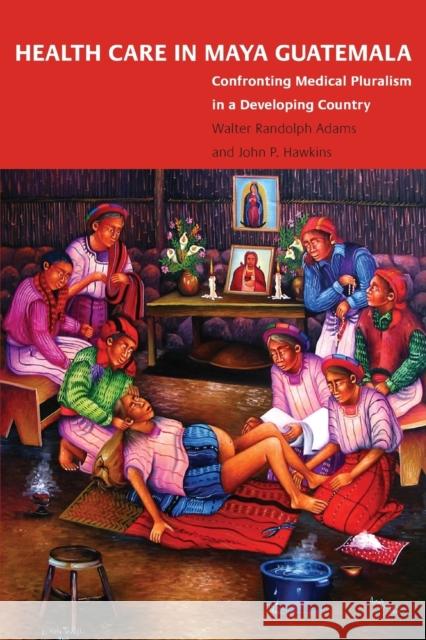Health Care in Maya Guatemala: Confronting Medical Pluralism in a Developing Country » książka
Health Care in Maya Guatemala: Confronting Medical Pluralism in a Developing Country
ISBN-13: 9780806138596 / Angielski / Miękka / 2007 / 292 str.
When the traditional meets the modern, nowhere is the impact felt as personally as in the realm of health care. Because practitioners trained in Western science tend to ignore traditional medicine in developing countries, conflict is inevitable.
"Health Care in Maya Guatemala" examines medical systems and institutions in three K iche Maya communities to reveal the conflicts between indigenous medical care and the Guatemalan biomedical system. The editors and contributors show how people in this rapidly modernizing society think about traditional practices and reveal that health conditions in traditional communities deteriorate over time as long-standing medical practices erode in the face of Western encroachment.
The contributors first consider cultural, institutional, and behavioral aspects of health care in Guatemala. Then they look closely at the nature and treatment of specific health issues, such as dentistry and mental health especially depression. Finally they provide new insight on midwifery, nutrition, ethnomedicine, and other topics.
As a whole, the volume proposes steps toward a health care system more accessible to Mayas, incorporating K iche concepts with Western thought. Representing trends seen throughout the world, it shows the necessity of cultural understanding if poor people are to have access to medicine that combines the best of both local tradition and international biomedicine. Although Western medicine continues to ignore the importance of local culture in its attempt to be scientific, this book makes a strong argument for giving tradition its due.
"
When the traditional meets the modern, nowhere is the impact felt as personally as in the realm of health care. Because practitioners trained in Western science tend to ignore traditional medicine in developing countries, conflict is inevitable.Health Care in Maya Guatemala examines medical systems and institutions in three Kiche Maya communities to reveal the conflicts between indigenous medical care and the Guatemalan biomedical system. The editors and contributors show how people in this rapidly modernizing society think about traditional practices-and reveal that health conditions in traditional communities deteriorate over time as long-standing medical practices erode in the face of Western encroachment.The contributors first consider cultural, institutional, and behavioral aspects of health care in Guatemala. Then they look closely at the nature and treatment of specific health issues, such as dentistry and mental health-especially depression. Finally they provide new insight on midwifery, nutrition, ethnomedicine, and other topics.As a whole, the volume proposes steps toward a health care system more accessible to Mayas, incorporating Kiche concepts with Western thought. Representing trends seen throughout the world, it shows the necessity of cultural understanding if poor people are to have access to medicine that combines the best of both local tradition and international biomedicine. Although Western medicine continues to ignore the importance of local culture in its attempt to be "scientific," this book makes a strong argument for giving tradition its due.











